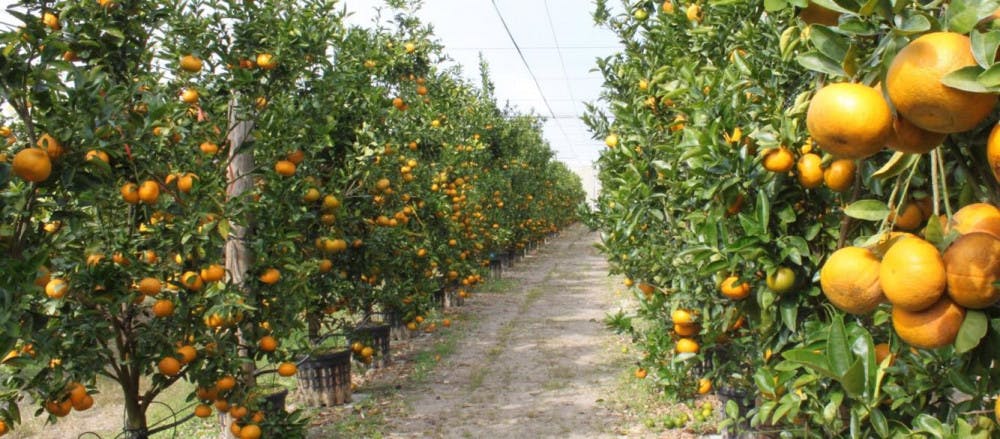Ralph Chamberlain has seen a disease sweep over his citrus grove like a cancer.
“As a farmer and as a business manager of a citrus business, we are actually dying a slow death,” he said.
Like many other Florida citrus growers, Chamberlain, the general manager of Edentown Co. in Charlotte County, is heavily affected by citrus greening. The disease is spread by insects that carry a bacteria, which causes trees to die and their fruit to taste abnormal, said Zhonglin Mou, a UF associate professor of microbiology and cell science.
To find a solution, three UF researchers, including Mou, received $10.52 million in federal grants to research ways to reduce greening, said UF’s Institute of Food and Agricultural Sciences spokesperson Brad Buck.
Since greening was first reported in Florida in 2005, the disease has decreased Florida’s citrus production by more than 50 percent, IFAS research has found, Buck said. It’s one of the state’s largest industries at about $8.6 billion per year.
Mou will receive $2.95 million to develop tolerant citrus trees by changing the genes that affect the trees’ immune system, he said.
Arnold Schumann, an IFAS soil and water sciences professor, said every variety of citrus grown in Florida is susceptible to greening.
“What makes it so devastating is the fact that it’s incurable,” Schumann said.
Schumann received $3.5 million on Jan. 1 from the National Institute of Food and Agriculture, a division of the U.S. Department of Agriculture.
He plans to further his research that he began in 2014 on a screening system that protects citrus from an insect species that spreads the bacteria causing greening, called the Asian citrus psyllid.
The system he uses, called Citrus Under Protective Screen, consists of a fine mesh screen that goes around the trees to block out the insect, he said. It can serve as a cost-efficient way to protect the plants.
It’s important for researchers to try to find a solution or resistance to greening, Schumann said.
“It employs not just people working in the citrus industry, but also all the satellite companies and supplies,” Schumann said. “It’s kind of an iconic symbol of the state.”
The third researcher, Nian Wang, an IFAS associate professor of microbiology and cell science, said he received about $3.6 million on Jan. 15 to make an orange tree that is resistant to the disease by using a technology that modifies genes.
For Chamberlain and his farm, he can only hope for a change.
“At this point, we’re just grabbing for anything,” he said.
Alligator Contributing Writer Wyatt Schreiber contributed to this report.
Citrus greening is a disease that reduces the production of citrus, with symptoms including yellowing of the leaves, dying of the trees or branches, abnormally tasting fruit and no fruiting. This 1-acre Citrus Under Protective Screen, a mesh screening, protects these 2.5-year-old mandarin trees by blocking out the Asian citrus psyllid, an insect that carries the bacteria that causes greening.






